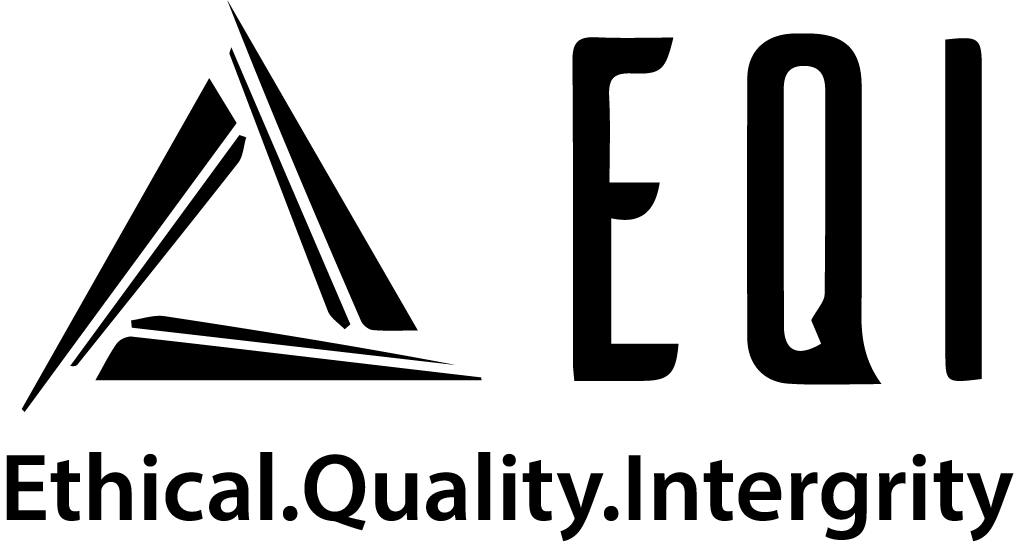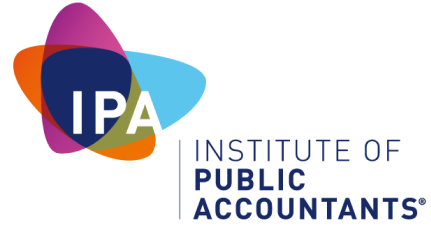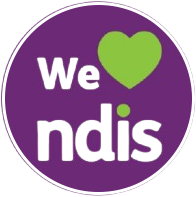NDIS Glossary of Terms

A
Access requirements
The person must be under 65, an Australian citizen or permanent resident, and have either a permanent disability or require early intervention.
Source: NDIS Act, s 4.
Ages & Stages Questionnaire (ASQ)
A developmental screening tool that pinpoints developmental progress and identifies delays in children who are younger than 5.5 years. Assistive technology (AT)
Any device or system that allows individuals to perform tasks they would otherwise be unable to do or increases the ease and safety with which tasks can be performed.
Source: World Health Organization
Assistive technology (AT)
Equipment or devices that help people do things they can’t do because of their disability. Assistive technology may also help people do something more easily or safely and can reduce the need for supports over time.
Source: Our Guidelines (external)
B
Best practice in early childhood intervention
Guidelines that have been researched and evidenced to support the best outcomes for young children and their families and carers, where the child has a disability or there are concerns about their development.
A document developed by a partner alongside a person with disability to provide them with a record of their goals, supports and referrals to community and other government linkages.
This is not a funded NDIS plan.
If a person who has a community connections plan becomes an NDIS participant, they will then receive a funded NDIS plan in place of the community connections plan.
C
Carer
A person or persons who provide care or support for a person with disability or child (where there are concerns about their development) and is not a paid support worker.
Child
A person who is under 18 years of age.
Under the early childhood approach, when the NDIS refers to a child, this means a person who is younger than 9.
People younger than 9 are supported through early childhood partners, and people 9 and above are supported through local area coordinators.
Child representative
The person or persons with parental responsibility for a child under 18 who can make decisions on their behalf. For some children, this may be an alternative adult(s) who is not their parent or a statutory authority.
Choice and control
The right for a participant to make their own decisions about their supports. This can involve choosing the supports they receive, including how and when the supports are provided, having a range of service providers to work with, and having the option to manage their own plan funding.
Community and other government supports/services
Goods, services, supports and assistance available to the general public which are not funded by the NDIS.
Community supports and services include social, study, leisure or sporting that are available in the community from local non-government groups such as men’s sheds or playgroups.
Other government supports and services include health, mental health, early childhood, school education, higher education, justice, transport, housing, child protection and family support, and employment services.
When describing other government supports and services, where possible, it is best to be descriptive about the specific kind of support you are referring to instead of the overarching term – so use ‘health, education, housing’, etc.
Community connections
Information provided by a local area coordinator to help people who are not NDIS participants make connections to the right supports and services to meet their needs. Community connections assist people with:
finding practical information relevant to their situation
connecting with community and other government services
connecting with other people like them for peer support
applying to the NDIS.
For children younger than 6 with developmental concerns, early childhood partners may offer early supports to the child and their family.
In this case, the family will be supported to develop an early supports plan.
For people aged 9 to 64, local area coordinators can provide support to develop community connections plans where appropriate.
Community connections plan
A document developed by a partner alongside a person with disability to provide them with a record of their goals, supports and referrals to community and other government linkages.
This is not a funded NDIS plan.
If a person who has a community connections plan becomes an NDIS participant, they will then receive a funded NDIS plan in place of the community connections plan.
Correspondence nominee
A person appointed to act on behalf of a participant in relation to activities under the NDIS Act that do not relate to a participant’s plan, for example, receiving copies of mail or making enquiries.
Correspondence nominees can be appointed by either the participant or the NDIA.
Source: NDIS Act, s 87.
D
Developmental concerns
Delay or delays in the development of a child younger than 6, below what is expected for their age, where they do not fully meet the developmental delay definition under section 9 of the NDIS Act.
Children younger than 6 with developmental concerns may be best supported by an early childhood partner through early supports or other services, including connection to a range of community and other government supports.
Developmental delay
Delay or delays in the development of a child younger than 6 that meets all the criteria described in the Applying to the NDIS Operational Guideline.
Children with developmental delay need to meet the NDIS Early Intervention requirements under section 25 of the NDIS Act.
Source: NDIS Act, s 9.
Disability
Total or partial loss of a person’s bodily or mental functions. Disability describes a person’s impairment of body or function, a limitation in activities or a restriction in participation when interacting with their environment.
Source: Disability Discrimination Act 1992, s 4.
Disability Reform Ministerial Council (DRMC)
A group consisting of Commonwealth, State and Territory disability ministers that regularly reports to National Cabinet on matters affecting people with disability.
The DRMC discusses ways to improve and implement policy through the NDIS and Australia’s Disability Strategy.
The DRMC is also the Ministerial Council for the purposes of the NDIS Act.
E
Early childhood approach
The early childhood approach helps children younger than 6 with developmental delay or children younger than 9 with disability and their families to access the right support when they need it.
Children younger than 6 who do not fully meet the definition of developmental delay and have developmental concerns will also be supported through the early childhood approach.
Early childhood intervention
Services and supports that children with developmental delay or disability and their families receive during the early years, when the child is developing most rapidly.
Early childhood intervention helps children develop the skills they need to take part in daily activities and achieve the best possible outcomes throughout their life. It is delivered by qualified early intervention allied health professionals, therapists and/or early childhood educators.
Early childhood partner(s)
Local organisations funded by the NDIA to deliver the early childhood approach.
Our early childhood partners have teams of professionals with experience and clinical expertise in working with young children with developmental delay or disability and their families.
The term ‘early childhood partner’ may refer to either the partner organisation, or the staff working within the organisation.
Early connections
Services provided by early childhood partners for children younger than 6 with developmental delay or children younger than 9 with disability and their families.
Early connections may include a combination of services such as connecting children and families to community and other government services, practical information relevant to a child’s development, early supports, and assistance to apply to the NDIS.
Early supports may be available to children younger than 6 with developmental concerns.
Early intervention
Providing support to a person, either a child or an adult, as early as possible to reduce the impacts of disability or developmental delay and build skills and independence.
Early supports
A program delivered by early childhood partners to build capacity in families and children (younger than 6 with developmental concerns) to promote everyday learning through a goal-focused approach, addressing specific concerns about the child’s development.
An early childhood partner will develop an early supports plan with the child’s family.
Early supports plan
A time-limited capacity-building plan for children younger than 6 with developmental concerns.
An early supports plan includes identified goals and priorities for the child, a list of who will provide support, and an outline of the strategies which will be used to support progress towards goals.
Ecomap
A representation of all the supports in an individual’s life. Ecomaps must be completed by a partner for children younger than 7. It is highly recommended they are completed by a partner for children aged 7 and older.
Eligibility
Whether a person can become or remain a NDIS participant or not. This is determined using the information on an access request form, the form which is used to apply for the NDIS.
F
Funded supports
Supports that the NDIS funds based on what is reasonable and necessary for a participant to pursue their goals, in addition to the support provided by family, friends, and other community and government services.
There are three types of support budgets that may be funded in a NDIS plan:
core support.
capacity building support
capital support.
G
Global developmental delay (GDD)
A diagnosis (as per DSM-5) reserved for children up to 5 years of age that applies to children who are unable to undergo systemic assessments of intellectual functioning, including children who are too young to participate in standardised testing.
A diagnosis will only be made when a child doesn’t meet certain expected developmental milestones in several areas of intellectual functioning.
The diagnosis requires reassessment after a period of time.
Global developmental delay is a condition on List D Permanent Impairment/Early Intervention, under 7 years.
A child younger than 7 with a diagnosis of global developmental delay may be eligible to become a participant of the NDIS.
Goals
Things people pursue with help from the NDIS and other supports and services.
Goals might include becoming more independent, getting or keeping a job, learning new skills, enrolling in education, becoming more active in the community, or improving relationships and making friends.
H
Health liaison officer (HLO)
A staff member that provides a link between state and territory hospital staff and the NDIS. HLOs work to ensure prospective and existing participants, deemed medically fit for discharge from hospital, have the right NDIS supports in place. They are based throughout Australia and provide support to all hospitals.
I
Individual capacity building
Supporting a person to develop skills and capabilities to make their own decisions and choices and be as independent as possible in managing their own life.
Informal support
The support people receive from the people around them, for example, from family, friends and neighbours. People providing informal support are not paid for the care they provide.
Typically, informal supports for a child are provided by a parent.
Information, linkages and capacity building
A grants program managed by the Department of Social Services providing funding to organisations to deliver projects in the community that benefit all Australians with disability, their carers and families.
Internal review of decision
A review conducted by the NDIA that may take place if a person is unhappy with a decision, like whether to approve someone’s plan.
During the review, the NDIA will determine whether the right decision was made under the law by looking at the facts and circumstances at the time of the review.
J
Justice liaison officer (JLO)
A staff member that provides a link between justice staff in all custodial settings and the NDIA. JLOs work to ensure prospective and existing participants, who are soon to be released from custody, have the right NDIS supports in place as they transition back to the community. They are based throughout Australia.
K
Key worker
A person who liaises with an early childhood intervention professional’s team and other services when working with a child’s family and carers to support them.
L
Lived experience of disability
A person’s own experience of living with a disability or having a close relationship with someone with disability, e.g. a family member or partner.
Local area coordination
A program delivered at the individual, community and systemic level to support people with disability to access a broad range of community and government supports and services.
Local area coordination supports people with disability to create and work towards their goals, build capacity to make their own decisions and choices, and access the supports they need to live the life they choose.
Local area coordination also supports communities and multiple levels of government to create a more inclusive society and deliver improved outcomes for all people with disability.
Local area coordination partners
Local organisations funded by the NDIA to deliver local area coordination services to people with disability aged between 9 and 64.
Local area coordinators (LAC)
A local area coordination partner staff member delivering local area coordination services.
M
Myplace portal
A secure website for participants, their nominee or third-party decision maker to view their NDIS plan, request payments and manage services with providers.
N
National Disability Insurance Agency (NDIA)
The Australian Government organisation administering the National Disability Insurance Scheme (NDIS).
National Disability Insurance Scheme (NDIS)
A national scheme for people with disability, administered by the National Disability Insurance Agency (NDIA).
The NDIS provides funding to eligible Australians with disability to gain more time with family and friends, greater independence, access to new skills, jobs, or volunteering in their community, and an improved quality of life.
Natural settings/environments
Places where children learn and develop everyday abilities and skills, including the home, community and early childhood education centers.
NDIS Plan
A unique document that details a participant’s goals and the supports they will receive from the NDIS.
It also outlines the community and other government supports participants can access to help them pursue their goals.
NDIS Planner
A NDIA employee who works with participants to create a NDIS plan that will support them to pursue their goals.
The planner is a delegate of the CEO.
NDIS Quality and Safeguards Commission
The NDIS Quality and Safeguards Commission (NDIS Commission) is an independent Commonwealth agency established to improve the quality and safety of NDIS supports and services.
For information about the NDIS Commission and what they do, please visit the NDIS Commission website. https://www.ndiscommission.gov.au/
Nominee
A person appointed to act or make decisions on behalf of a participant.
Nominees or third-party decision makers can be appointed by both participants and courts.
They may include a child representative, correspondence nominee, plan nominee, court-appointed decision-maker or participant-appointed decision-maker.
O
Operational Guidelines/Our Guidelines
A collection of documents outlining the NDIA’s operational information based on the NDIS Legislation and Rules.
These guidelines explain what the NDIA needs to consider and how it makes decisions based on legislation.
The NDIA is working to update all its Operational Guidelines to make them simple, clear and easy to use.
These will be released under the new name of ‘Our Guidelines’,
P
Paediatric Evaluation of Disability Inventory Computer Adaptive Test (PEDI-CAT)
A functional capacity assessment for children and youth.
PEDI-CAT may be used alongside other assessments and can be used in conjunction with other information to understand how a child’s developmental delay or disability impacts on their ability to participate in daily life activities compared to other children of a similar age.
Participants
People who apply and meet the access criteria for the NDIS.
Participation in the community and workforce
The opportunity for NDIS participants to meet like minded people and join in social, community and workforce activities.
There are many supports, programs and activities available to help participants pursue their social and community participation goals.
Partners
Community-based organisations funded by the NDIA to help deliver the NDIS in some parts of Australia.
Early childhood partners work with children younger than 9 who have a disability, and children younger than 6 where there are concerns about their development.
Local area coordination partners work with people between the ages of 9 and 64.
Partners support people to apply to the NDIS.
Partners can also provide support to people with disability, young children, their families and carers regardless of whether they are NDIS participants or not.
Partners in the community program
The NDIS program that funds and manages community-based organisations to deliver early childhood and local area coordination services.
Permanent and significant disability
Disability that is likely to be lifelong and has a substantial impact on a person’s ability to complete everyday activities.
An impairment or impairments that are episodic or fluctuating may be taken to be permanent for the purpose of assessing eligibility to become a participant of the NDIS.
Person with disability
A person who has long-term physical, mental, intellectual or sensory impairments which in interaction with various barriers may hinder their full and effective participation in society on an equal basis with others.
Source: United Nations
Plan Manager
A type of provider that helps participants financially administer the NDIS-funded supports in their plan.
They also provide participants with reports to ensure the participate is aware of amount of funding support is left in a given plan
Plan nominee
A person appointed to assist in the development, preparation, review or replacement of a participant’s plan. Plan nominees can be appointed by either the participant or the NDIA.
Plan reassessment
A discussion held towards the end of a participant’s plan, initiated by either the participant or the NDIA.
The talk outlines what has worked for the participant in their current plan, and what they may need in future.
Plan variation.
A change made by the NDIA to a participant’s plan without undertaking a full plan reassessment.
This may be to correct a minor or technical error, to change the reassessment date of the plan, or to reflect a different provider or manner of support provision.
Price limits
The maximum price that a registered provider can charge a participant for their NDIS funded disability support or service.
The NDIA’s price limits and pricing arrangements help participants get reasonable value for money from their plan funds.
Pricing arrangements
The rules around when and how a provider can claim for supports and services from a participant’s NDIS funds.
They provide information on the current and previous price limits for each support item and indicate which claim types (travel, non-face-to-face, etc.) apply for each price-limited support item.
Provider
An individual or organisation that delivers supports or products to participants.
Participants can use both NDIS-registered and unregistered providers.
Provider finder
An online tool where individuals can browse a list of NDIS-registered providers nearby to them.
The information listed includes contact details, registration groups and professions.
R
Reasonable and Necessary
The criteria all supports must meet to be funded or provided by the NDIS in a participant’s plan. ‘Reasonable’ means something fair, and ‘necessary’ means something a person needs.
The NDIS funds reasonable and necessary supports and services that relate to a person’s disability to help them pursue their goals and meet their needs.
Reassessment Date
A date specified in a participant’s plan by which the NDIA must reassess the plan with the participant.
The plan may be reassessed earlier at the request of either the participant or the NDIA.
Registered Provider
A person or organisation that is registered with the NDIS Commission to provide supports in accordance with section 73E of the NDIS Act.
To register, providers must meet the NDIS requirements for qualifications, approvals, experience, capacity and quality standards to provide a product or service.
Providers must also be registered to deliver certain kinds of supports (e.g. implementing regulated restrictive practices in a behaviour support plan).
Source: NDIS Act, s 70, 73E.
Remote community connectors
Individuals from remote communities employed to support people with disability in remote and very remote areas to access the NDIS and help connect them to other government services.
Remote community connectors provide support with planning tasks and implementing participants funded supports and services.
RCCs also share their local expertise back to the NDIA to identify opportunities to support people with disability in a culturally appropriate way.
Reviewable decision
A decision of the CEO which can be reviewed under section 99 of the NDIS Act.
Examples of these decisions include revoking a person’s status as a participant, deciding not to review a participant’s plan or refusing to approve someone as a registered provider.
Section 100 of the NDIS Act sets out how the Agency must respond to a request for a review.
S
Self-management funding
Participants receive all or part of their NDIS funding.
They manage their payments for supports and pay their providers directly.
Service agreement
An agreement between a participant and their provider that outlines what both parties have agreed to.
Service agreements help make sure the participant and provider have the same expectations of what supports will be delivered and how they will be delivered.
Making a service agreement is a negotiation between the participant and the provider.
Short Term Accommodation (STA)
An arrangement to provide funding for support and accommodation for a short time away from a participant’s usual home.
Short Term Accommodation covers the cost of a participant’s care in another place for up to 14 days at a time, and may include a short stay with other people, or by themselves.
It is often funded when a participant’s usual carers aren’t available, or for the participant to try new things.
Social insurance
The model of funding that the NDIS is built upon, investing in formal, disability-specific support to reduce the lifetime cost of disability at both the population level and individual level.
The whole community bears the cost of providing supports through levies and taxes.
Supports and services
A person who liaises with an early childhood intervention professional’s team and other services when working with a child’s family and carers to support them.
Support coordinator
A type of provider that helps participants understand and use the NDIS-funded supports in their plan.
They also help participants build their skills so they can use their plans more independently and connect with community supports and services.
Local area coordination
A program delivered at the individual, community and systemic level to support people with disability to access a broad range of community and government supports and services.
Local area coordination supports people with disability to create and work towards their goals, build capacity to make their own decisions and choices, and access the supports they need to live the life they choose.
Local area coordination also supports communities and multiple levels of government to create a more inclusive society and deliver improved outcomes for all people with disability.
T
Typical Support Package (TSP)
An indication of the supports usually included in a participant’s plan based on their situation and disability support needs.
The Typical Support Package serves as a benchmark for the NDIS’s financial management and support planning.
Planners refer to the typical support packages prior to the approval of plans.
V
Vehicle modifications
Changes or equipment installations which enable a person with disability to gain access to and, in some cases, operate a vehicle.
This can include enabling the person to get in and out of a vehicle with or without a wheelchair, be transported safely whilst seated in their wheelchair, or drive a vehicle with specialized controls or other adaptions.






